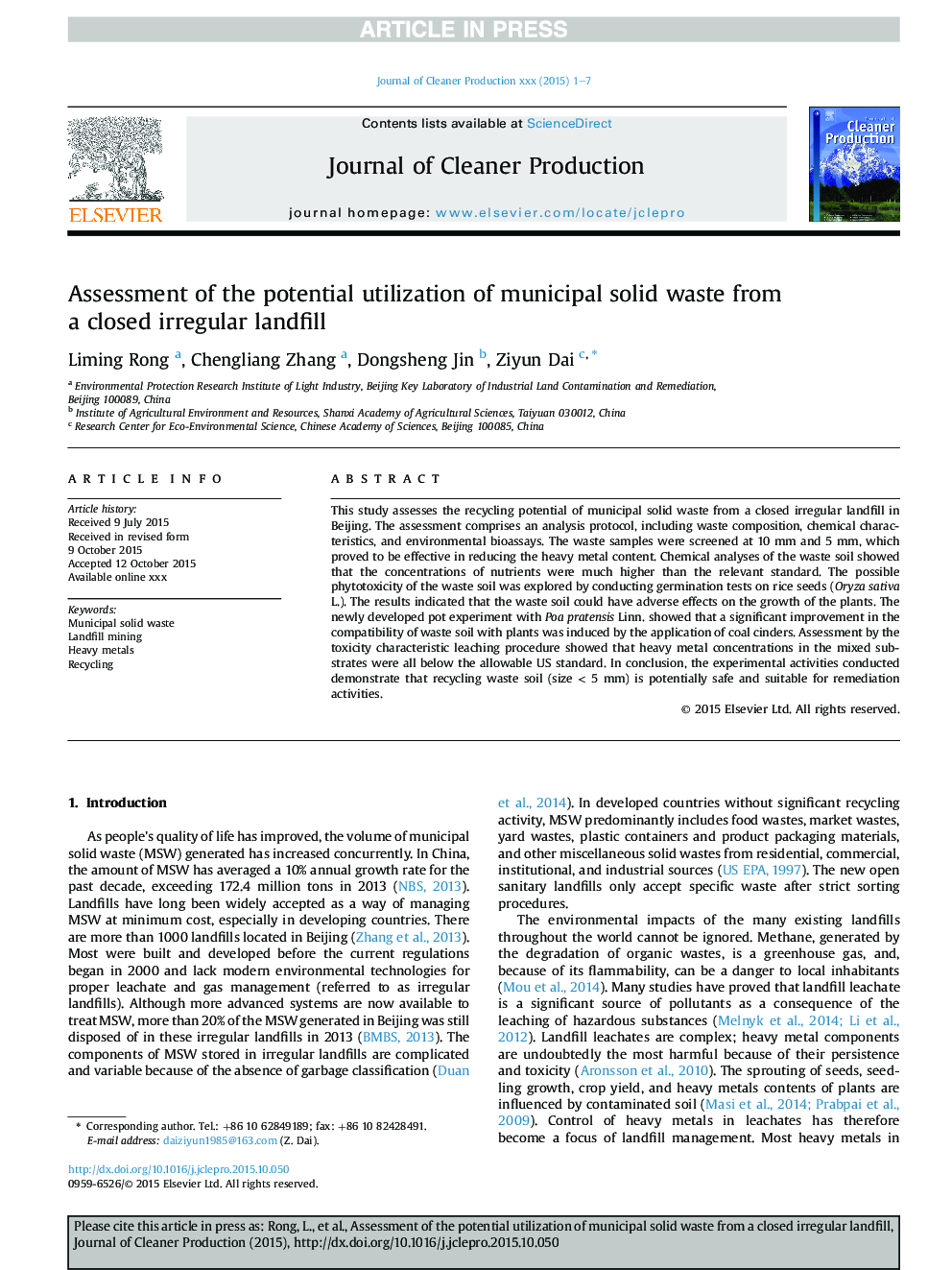| Article ID | Journal | Published Year | Pages | File Type |
|---|---|---|---|---|
| 5481361 | Journal of Cleaner Production | 2017 | 7 Pages |
Abstract
This study assesses the recycling potential of municipal solid waste from a closed irregular landfill in Beijing. The assessment comprises an analysis protocol, including waste composition, chemical characteristics, and environmental bioassays. The waste samples were screened at 10 mm and 5 mm, which proved to be effective in reducing the heavy metal content. Chemical analyses of the waste soil showed that the concentrations of nutrients were much higher than the relevant standard. The possible phytotoxicity of the waste soil was explored by conducting germination tests on rice seeds (Oryza sativa L.). The results indicated that the waste soil could have adverse effects on the growth of the plants. The newly developed pot experiment with Poa pratensis Linn. showed that a significant improvement in the compatibility of waste soil with plants was induced by the application of coal cinders. Assessment by the toxicity characteristic leaching procedure showed that heavy metal concentrations in the mixed substrates were all below the allowable US standard. In conclusion, the experimental activities conducted demonstrate that recycling waste soil (size < 5 mm) is potentially safe and suitable for remediation activities.
Related Topics
Physical Sciences and Engineering
Energy
Renewable Energy, Sustainability and the Environment
Authors
Liming Rong, Chengliang Zhang, Dongsheng Jin, Ziyun Dai,
